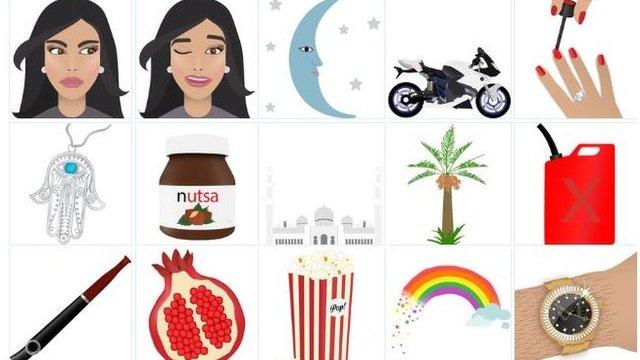India cricket captain Mithali Raj calmly reads book before batting
- Published
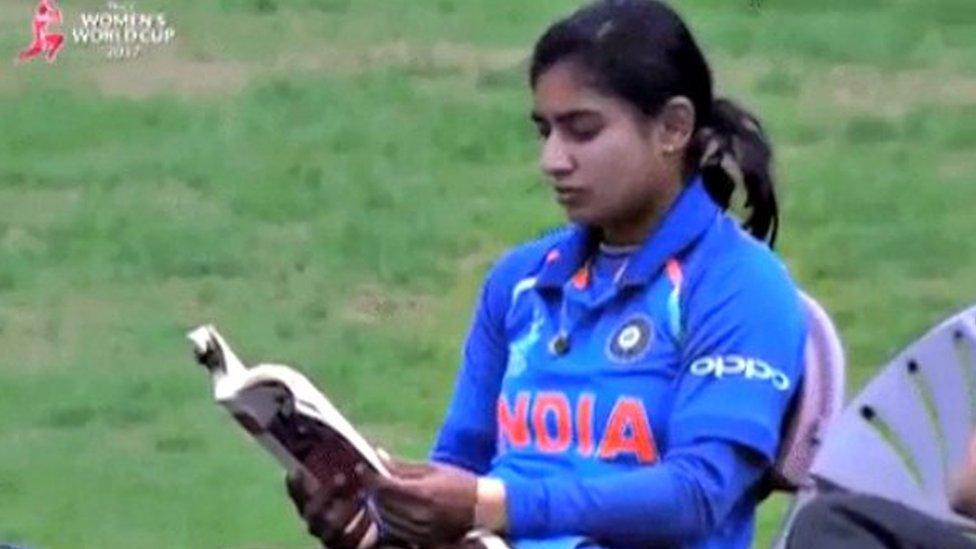
The captain of the Indian women's cricket team reads the work of a 13th-century Persian poet
The captain of India's women's cricket team caught fans' attention during a World Cup game on Saturday by calmly reading a book as she waited to bat.
Mithali Raj said she was an avid reader and it calmed "jitters" before her big moment.
Her performance helped India beat England by 35 runs during the tournament's opening day in Derby, and she also broke a world record.
She has been nicknamed "Captain Cool" by fans.
In a post-game interview, she said the book was by 13th-century Persian poet Rumi.
She borrowed it from a coach as she was not allowed to bring her normal electronic e-reader with her.
The game saw her become the first woman to score seven consecutive half-centuries in one-day international cricket. She scored 71 runs.
India's supporters expressed their admiration on social media.
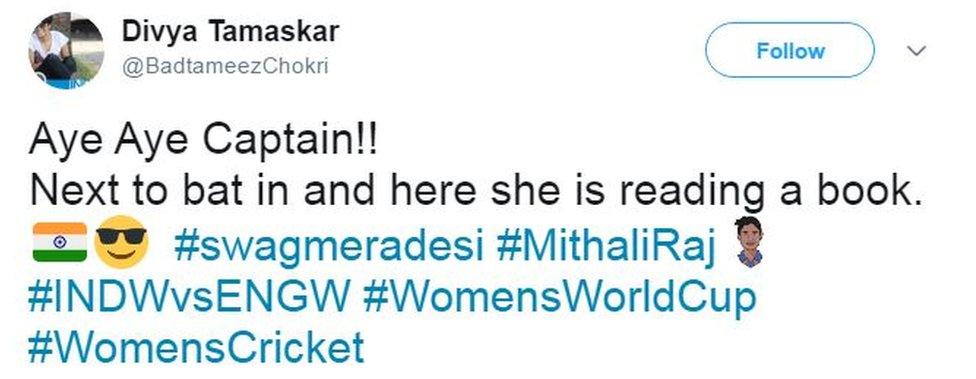
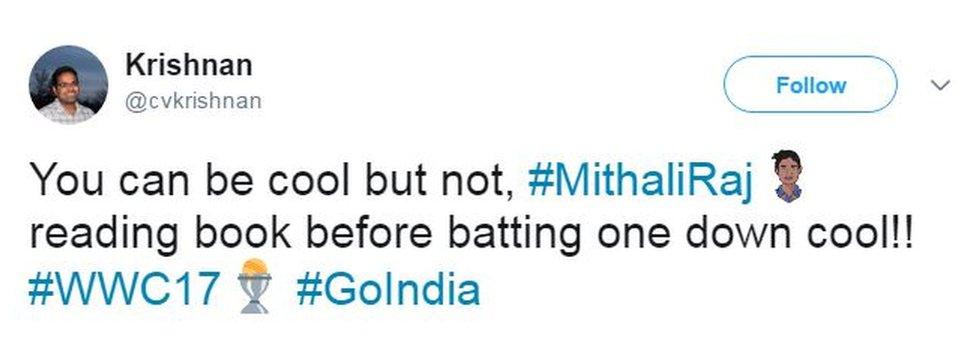
She had already won praise for the way she answered a question at a press event on the eve of the tournament.
When asked who her favourite men's cricketer was, she replied: "Do you ask the same question to a male cricketer? Do you ask them who their favourite female cricketer is?"
Huffington Post India said it was "the perfect clap-back for a question that reeked of gender bias, external".
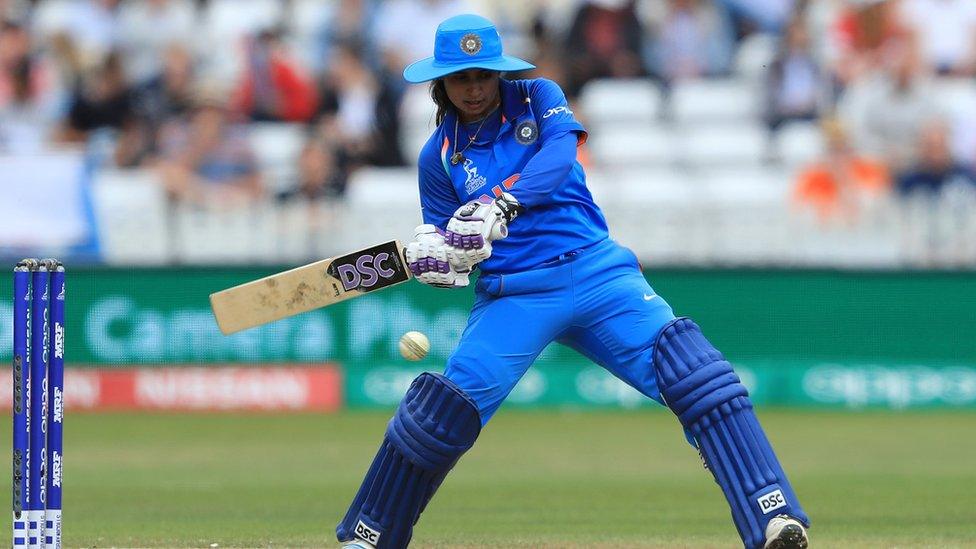
Mithali Raj batting against England on Saturday
Raj has said women's cricket struggles to get the same recognition as men's, but she believes television coverage and social-media buzz is helping.
For the Women's World Cup, which is currently taking placed in England and Wales, the International Cricket Council (ICC) has created special Twitter emojis of all eight female captains.
They appear automatically when users type in their names with a hashtag.
The ICC said this is part of their "unprecedented coverage of the women's game".
When a television interviewer asked Raj how she felt about this, she did an impression of a shocked emoji face, and then smiled.
"It feels great to have an emoji on your name and it is good for women's cricket. It gives importance to women cricketers," she said. , external
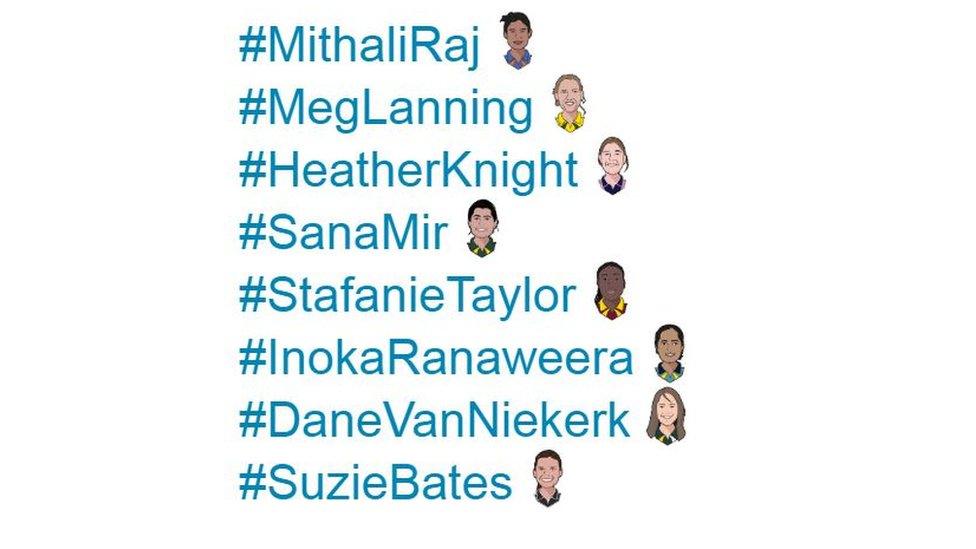
The captains' emojis as they appear on Twitter
- Attribution
- Published24 June 2017
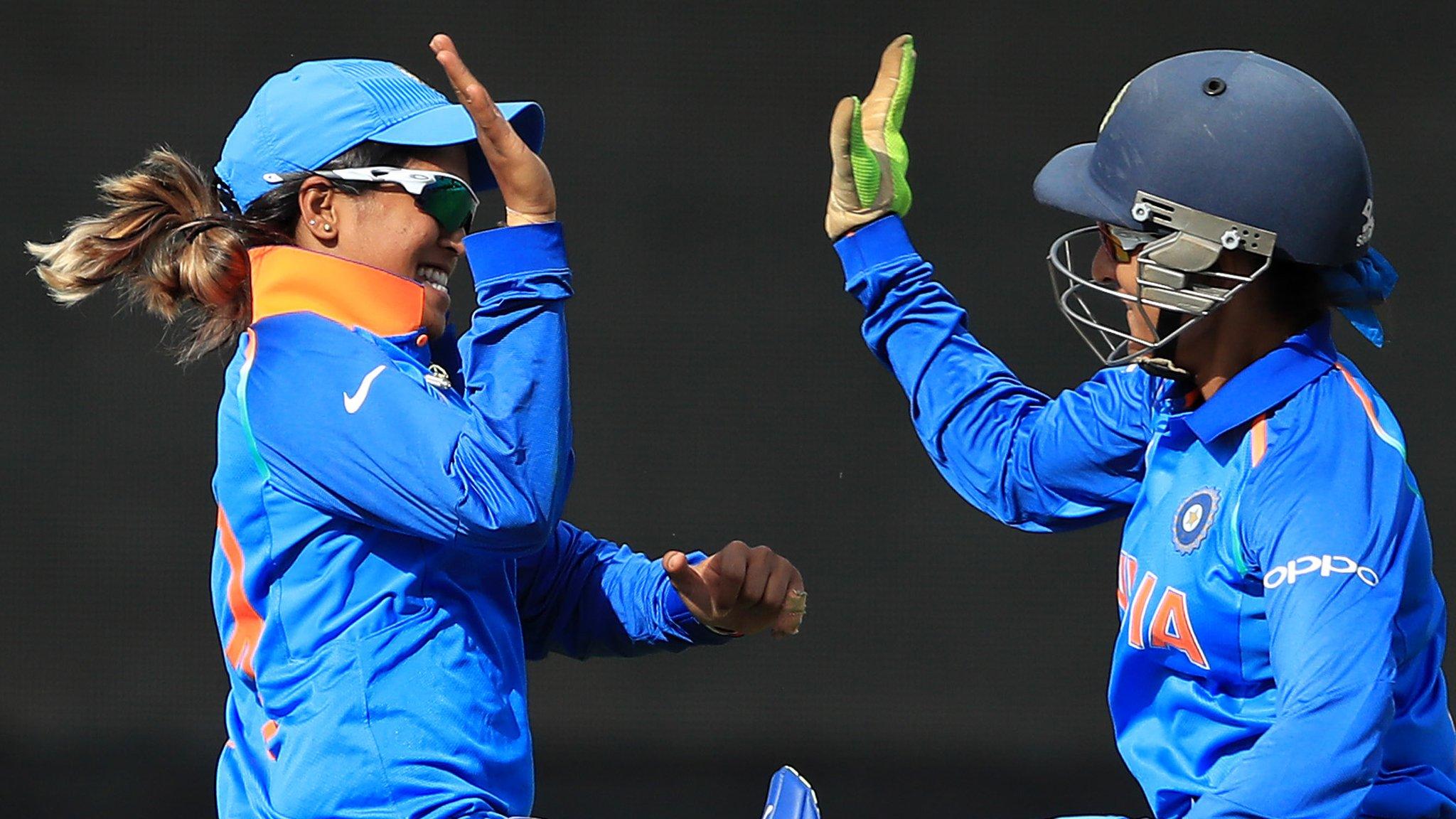
- Attribution
- Published22 June 2017
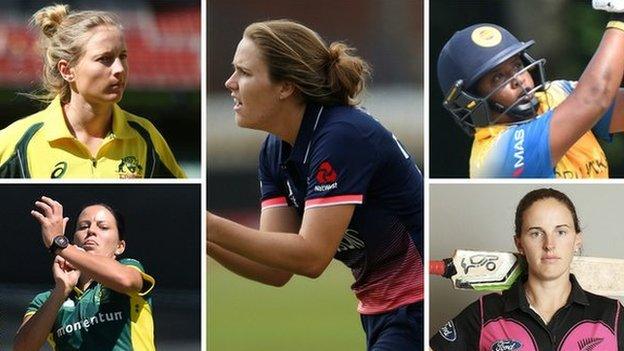
- Attribution
- Published21 March 2016
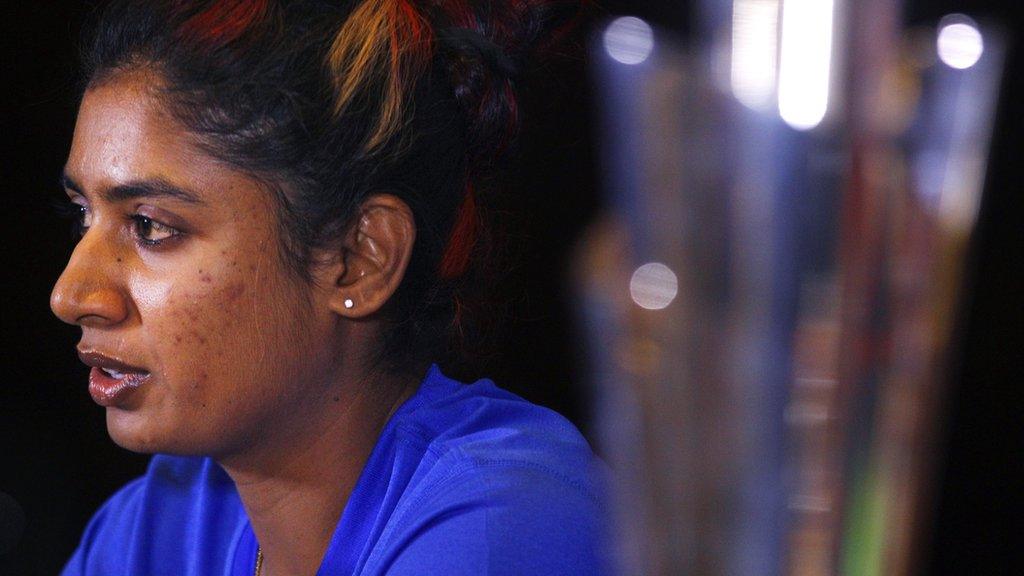
- Published28 February 2017
